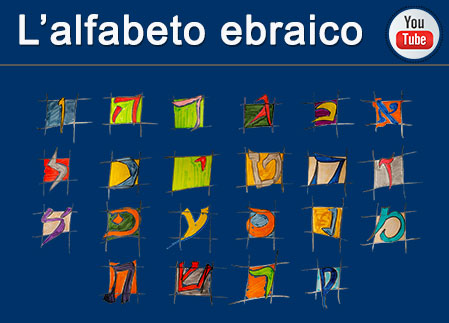Evangelical Church in Germany
Germania 1976
The following is a translation of the outline of contents and of the section 111/6, reprinted from W.C.C.: The Church and the Jewish People, Newsletter No. 1, 1976, pp. 16-18.Contents
I - Common Roots
1. One God
2. Holy Scriptures
3. The People of God
4. Worship
5. Justice and Love
6. History and Fulfilment
II - The Divergence of the Ways
1. The Belief in Jesus Christ
2. The interpretation of Holy Scriptures
3. The Christian Church and the People of God
4. The Development of the Essence of Judaism and Christianity
5. The Delineation between Judaism and Christianity
III - Jews and Christians Today
1. The Variety of Structures within Judaism and Christianity
2. The Two Forms of Jewish Existence
3. The State of Israel
4. Jews - Christians - Germans
5. Common Tasks
6. Encounter and Witness
6. Encounter and Witness
When Christians and Jews meet the question of how the different aspects of their common belief in one God can be made fruitful for mutual witness. Christians continually have to consider how they justify their witness to the Jews.
Christians and Jews understand and witness their belief in the one God who has revealed himself in history, following their own interpretation. Central to the Jewish belief is the Torah as God's plan and tool to shape and complete the world; for Christians it is Jesus Christ with his message of salvation for all mankind. In the face of these differences and similarities an encounter of Christians and Jews . cannot simply remain on the plane of getting to know each other. Such encounters offer the opportunity to enrich and clarify one's own belief through listening to the Holy Scriptures together. The more open and concentrated such encounters are, the more freely will the divisive factors which exist be brought out into the open.
Neither can give up the witness to his belief: God demands that the believer witness to his belief to realize his identity as Christian or Jew in word and deed. Encounters on this basis are only meaningful, however, if they are carried out in careful consideration of the long and painful history of the Jews' and Christians' mutual relationship.
In the time of Jesus one of the characteristics of Judaism was the spreading of this faith among the nations. The early Christian community did the same to fulfill the call to mission of their risen Lord. Thus far-reaching Christian missionary activity developed among Jews and Gentiles. This led to the founding of communities whose members were partly Jews and partly Gentiles.
In the initial period of the Church the baptism of Jews in the name of Jesus was still compatible with membership of the Jewish people. As Church and Judaism grew apart from each other, however, conversion to the Christian faith increasingly meant the loss of Jewish identity.
With the increasing spread of Christianity the Jews gradually developed into a minority. Eventually Judaism became the only tolerated religious minority in a statechurch-system which dominated all aspects of community life. Because of this balance of power, frequent pressure also in the religious sphere was exerted upon the Jews in the course of the centuries. Alongside persecutions and expulsions there were compulsory conversions and forced religious conversations, which were to prove the superiority of Christianity. Thus the essential understanding of the Christians' testimony towards the Jews was often obscured or even reversed.
Not until the changed spiritual and social conditions of modern times did serious attempts take place within the Protestant sphere to regain the original understanding of the Christian testimony towards the Jews. This is true especially of the period since the rise of pietism which in reference back to the Reformation re-expounded the freedom of the Gospel and converted the idea into practice. The social superiority of Christianity thus, through the conscious turning towards the personal testimony of individual Christians towards individual Jews, no longer adopted the importance it had earlier possessed. It was from such motives connected with belief that the Mission to the Jews came into being. Thus fruitful encounters between Christians and Jews took place. This awakened a new Christian interest in Judaism, not least in the academic world. The fact that since the Enlightenment an increasing number of Jews have for mainly social reasons become Christians is only partly related to the Mission to the Jews.
After a period of growing anti-Semitism in the 19th and 20th centuries, in which also isolated Christiansmade their stand in protecting Jews after the terrible events of the National Socialist Jewish persecution, the position has changed in several respects. The Church has lost much of its earlier importance in public life, and through its far-reaching failure during the Jewish persecution has been renewed in the impartiality of its testimony towards the Jews and has been shaken in a most comprehensive manner.
The conviction in one's own belief necessary for a fruitful encounter has been greatly hampered in the past by failures in and ill-conceived forms of Christian application. Even today there are still some missionary practices which offer the Jews well-founded reasons for mistrust; they are even decisively rejected by the Church and also by those who stand for a missionary testimony towards the Jews.
Such misuse does not release the Christians from the real effort to account for the Gospel in relation to « the hope that is in you » (I Peter 3:15). Belief can not remain silent.
After everything that has happened there are a great variety of opinions in relation to the question how the Christian testimony towards the Jews can continue in the right way. In past years the discussion about it has above all revolved around the two concepts « mission » and « dialogue». Often they were understood as mutually excluding opposites. In the meantime however the understanding has developed that mission and dialogue are two dimensions of the one Christian testimony. This understanding also completely conforms with the modern understanding of Christian mission.
Not only the concept « Mission » but also the concept « Dialogue » is a loaded term for the Jews as a description of the Christian testimony. Therefore the Christians have before them the duty to consider how they understand this testimony that Jesus Christ means salvation for all men in relation to the Jews, what terms they should use to describe it and give it meaning.
The Church is not allowed to neglect this, but frankly to express that she herself needs the conversations with Judaism, for here she comes up against the experiences with the God of the Bible, which can help every Christian to considerably deepen his understanding of his identity. This is of fundamental importance for the continuing possibilities for the encounter between Christians and Jews.
103 visualizzazioni.
Inserito 01/01/1970
Relazioni Ebraico-Cristiane
Ultime novità nel sito
- 19/04/2020: Articolo - L’enigma della Maddalena
- 23/02/2020: Articolo - Il locus amoenus nelle catacombe ebraiche e cristiane di Roma
- 16/02/2020: Articolo - Il profetismo nel Vicino Oriente antico
- 13/02/2020: Articolo - I Profeti della Cappella Sistina
- 09/02/2020: Articolo - Gerusalemme e la Terra Santa di Israele


